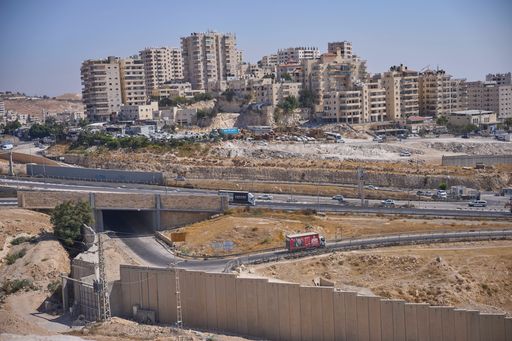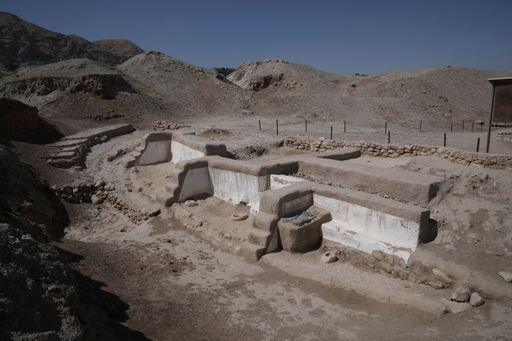Israel’s final approval of the E1 settlement project marks a watershed moment. For decades, successive Israeli governments refrained from moving forward with this plan precisely because of its far-reaching consequences.
Now, by giving the green light to more than 3,400 housing units between Ma’ale Adumim and East Jerusalem, Israel has made its intentions explicit: not only to entrench occupation but to erase the very possibility of a Palestinian state.
The significance of E1 has long been recognised by the international community. American, European, and even Israeli officials once warned that construction here would make a contiguous Palestinian state impossible.
The reason is simple: the project would sever East Jerusalem from the rest of the occupied West Bank and bisect the territory into northern and southern fragments. Without territorial continuity, the two-state solution becomes geographically unworkable.
That is why Israeli Finance Minister Bezalel Smotrich’s declaration was so blunt: “The Palestinian state is being erased from the table, not with slogans but with actions.”
This is not a rhetorical flourish. It is the formal abandonment of the peace process.
Israel is openly declaring what has long been obvious in practice — that it has no intention of allowing Palestinian sovereignty.
Two states, one illusion
For decades, the two-state solution has been upheld by Western governments as the only viable framework for peace. E1 now exposes this as a fiction. By deliberately cutting off Palestinian communities from one another, Israel is not just expanding settlements; it is rendering Palestinian statehood structurally impossible.
Successive US administrations, from Clinton to Obama, opposed E1 for precisely this reason. The European Union has long described it as a “red line.” Yet Israel has now crossed that line without consequence.
There was no immediate comment from the US this time. But the direction of travel has been clear for years: when asked by Israel’s Army Radio about the Trump administration’s stance on E1, ambassador Mike Huckabee responded bluntly, “Whether or not there should be massive development in E1 is a decision for the government of Israel to make. So we would not try to evaluate the good or the bad of that.”
If world leaders continue to repeat the mantra of a two-state solution while failing to act against E1, they will not just be deluding themselves — they will be complicit in burying the last remnants of that vision.
A new wave of dispossession
The human impact is equally stark. Beyond the diplomatic jargon of “viability” and “contiguity,” E1 will devastate Palestinians on the ground.
The area slated for construction is not empty land; it includes Palestinian villages and Bedouin communities, such as Khan al-Ahmar, long at risk of demolition.
These communities face the prospect of forced displacement. The project will confiscate land, demolish homes, and further strip communities of access to their agricultural livelihoods.
It will also tighten Israel’s already suffocating control over Palestinian movement. By cementing settlement blocs around Jerusalem and across the central West Bank, E1 will make travel between the northern and southern parts of the territory even more difficult — and possibly entirely forbidden unless special permission is obtained, replicating the separation between Gaza and the occupied West Bank.
Palestinians already contend with checkpoints, segregated roads, and a separation wall. E1 will deepen these divisions, ensuring that daily life becomes more fragmented, insecure, and precarious.
And as history shows, settlement growth does not come alone. It is accompanied by increased settler violence, backed by Israeli military protection.
Palestinian farmers will face more land theft, more intimidation, and more restrictions on access to water and natural resources. The approval of E1 signals not just a construction project but a new wave of dispossession.

Empty concern
Diplomatically, the move leaves Israel more exposed than ever. At the very moment when dozens of countries have pledged to formally recognise the State of Palestine in September, Israel is acting to erase that state from the ground.
Recognition, important as it is symbolically, will mean little if not coupled with concrete measures to halt Israel’s annexationist policies. Otherwise, the world risks the absurdity of recognising a state whose territory is being deliberately carved up and colonised in real time.
For Israel, the gamble is clear. Its leaders are betting that Western governments will continue to issue statements of “concern” while doing nothing meaningful. So far, they are right.
Despite the International Court of Justice warning of a “plausible risk of genocide” in Gaza, and despite Amnesty International, Human Rights Watch, and even Israeli NGO B’Tselem declaring Israel an apartheid regime, the UK, US, and EU have not imposed a single sanction. Instead, Israel continues to receive military aid and diplomatic cover.
But the approval of E1 makes this position increasingly untenable. How can Washington, London, or Brussels continue to speak of a two-state solution while Israel openly declares it is erasing that solution “with actions”?
How can recognition of Palestine in September carry credibility if those same governments refuse to act against the very project designed to destroy it?
E1 is not just about 3,400 housing units. It is about the future of Palestine and the credibility of the international order. By moving ahead with this project, Israel is making clear that it does not fear consequences.
It has calculated — correctly so far — that no Western government will act decisively to stop it.
The choice now falls to the UK, the EU, and the US. They can continue to issue statements while allowing Israel to cross every red line. Or they can match their words with action — through sanctions, accountability measures, and real pressure to halt settlement expansion.
E1 is the clearest sign yet that Israel has abandoned even the pretence of peace. The only question left is whether the world will continue to pretend alongside it.




















